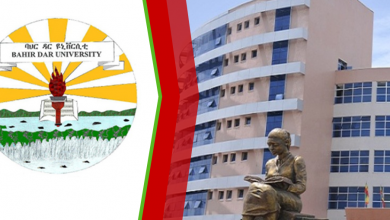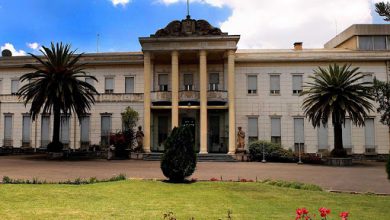The correlation between the quality of education and performance of a nation
The economy rests on four pillars – land, labor (entrepreneurship), capital, and government policy. At least, labor, which includes entrepreneurship involves humans. The quality of the labor force defines the prospects for sustainable growth and development in any country. This is why nations are willing to invest in developing and maintaining a robust human resource base. It all starts with education and the number of schools and higher education institutions. However, what matters most is, the quality of education at all levels, from primary schools to postgraduate learning. The quality of knowledge, as well as the quality and consistency of training, defines the patterns of professionalism and productivity, which creates conditions for continued economic development and socio-economic transformation in a nation.
Nations cannot survive if they do not adequately educate their children. It may sound pathetic, but the truth is that education, availability, accessibility, and quality, defines the way nations build their future and the future of their citizens. The quality of education is deeply intertwined in the success of most, if not all, economic processes in any country. Citizens who possess a better understanding of their surroundings and the world at large are better positioned to contribute to nations’ growth. In fact, the quality of education is measured as the effect of knowledge on individual earnings and aggregate economic indicators (Hanusek & Wosmann, 2007). Therefore, the quality of education influences individual earnings, which, in turn, contribute to economic development and growth of nations.
How does the quality of education impact individual earnings? Basically (the assumption is there is a rule of law in a given country), individuals who are better educated and well informed are more likely to have the knowledge, skills, and competencies needed to succeed in a competitive labor market. The level and quality of their education increase their earnings. Educated people may earn 10-20 percent more than their less-educated counterparts (Hanusek & Wosmann, 2007). Besides, specialists with a strong educational background, who know the benefits of quality education, may want to engage in continuous learning to update their skills, refine their knowledge, and strengthen their professional position in the labor market. These achievements further translate into broader economic changes.
From a nation’s perspective, education contributes to the growth and sustainability of its labor force. Educated workers are more productive (Hanusek & Wosmann, 2007). Increased productivity reduces costs and increases economic output. Educated individuals with diverse skills and competencies may foster a more effective division of labor, when workers fulfill the tasks and assume responsibilities they can satisfy in the best possible way, resulting in fewer workplace mistakes and increasing their efficiency and cost-effectiveness. Quality education contributes to the quality of human capital, promoting creativity and growth. As a result, economies with better-educated people are geared to offer new, productive solutions to product and service issues. They are better prepared to produce innovative and affordable products, which can easily become their competitive advantage in global markets.
The importance of quality education is not limited to the economy; nations’ politics and socioeconomic life can also improve in the presence of educated citizens. After all, a well-developed system of education can prepare graduates for the complexities of political life and encourage them to join the ranks of prominent politicians who lead the nation toward better economic, social, and cultural goals. Well-educated people can use their knowledge and skills in policy and advocacy, in the best interests of their nation’s. As such, the future of nations depends on the quality of their education systems. It is a perfect lesson that developing nations should learn to succeed in a highly competitive world.
Unfortunately, many countries miss an opportunity to improve their education systems, either because they underestimate their role in economic growth or because they misunderstand the ways, in which such systems could be realistically improved. In 2015, Gebremedhin and Asgele published the results of their study from a College in Ethiopia, revealing the main issues facing higher education in the country, from extensive cheating during exams to the lack of a solid academic background in graduates. Despite the growing number of educational institutions in the country, Ethiopia lags behind the developed world in terms of the quality and consistency of its academic achievements. These difficulties create a considerable room for further improvement.
The key to resolving this puzzle is restructuring the school and university infrastructure to ensure that the knowledge and learning provided to students fit the demands of the new millennium. Latin America provides a sad example, where educational quantity replaced educational quality, slowing down economic growth (Hanushek & Woessmann, 2009). Nations may want to revise their education systems to eliminate redundancy (removing educational institutions that fail to improve students’ knowledge) and restructure the existing facilities to provide the knowledge, skills, and competencies needed for the economic and cultural growth in the nation. Much has been written and said about the way systems of education across the world should function to successfully deliver their mission and fulfill their vision in the 21st century. Education should be flexible enough to react to changes in global markets and facilitate diversity through globalization and continuous learning. Fairly speaking, knowledge and education should not be limited to universities, colleges, or schools. Nations’ growth and development will depend more or less on citizens’ ability and motivation to engage in continuous learning opportunities. Nations should create favorable conditions for continuous knowledge improvement, which will undoubtedly predispose them to positive change in the long run.
I will sum up my article with a quote from Aravind Adiga’s booker’s award-winning book, The White Tiger: “The story of my upbringing is the story of how a half-baked fellow is produced. But pay attention, Mr. Premier! Fully formed fellows, after twelve years of school and three years of university, wear nice suits, join companies, and take orders from other men for the rest of their lives. Entrepreneurs are made from half-baked clay.”
Ed.’s Note: Samuel Alemu, Esq is a partner at the ILBSG, LLP. His partner at the ILBSG, LLP, Praveen C. Medikundam, Esq contributed to this article. They are both admitted to the bar associations of New York State, United States Tax Court, and the United States Court of International Trade. Samuel can be reached at [email protected]. Samuel’s twitter handle is @salemu.
Contributed by Samuel Alemu
Note: released first on Reporter English






